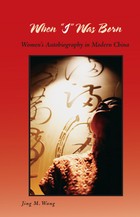
Women entered the book trade in significant numbers in China during the late sixteenth century, when it became acceptable for women from “good families” to write poetry and seek to publish their collected poems. At about the same time, a boom in the publication of fiction began, and semiprofessional novelists emerged.
This study begins with three case studies, each of which probes one facet of the relationship between women and fiction in the early nineteenth century. It examines in turn the prefaces written by four women for a novel about women; the activities of a woman editor and writer of fiction; and writings on fiction by three leading literary women. Building on these case studies, the second half of the book focuses on the many sequels to the Dream of the Red Chamber—one of which was demonstrably written by a woman—and the significance of this novel for women. As Ellen Widmer shows, by the end of the century, women were becoming increasingly involved in the novel as critical readers, writers, and editors. And if women and their relationship to fiction changed over the nineteenth century, the novel changed as well, not the least in its growing recognition of the importance of female readers.

“Autumn wind, autumn rain, fill my heart with sorrow”—these were the last words of Qiu Jin (1875–1907), written before she was beheaded for plotting to overthrow the Qing empire. Eventually, she would be celebrated as a Republican martyr and China’s first feminist, her last words committed to memory by schoolchildren. Yet during her lifetime she was often seen as eccentric, even deviant; in her death, and still more in the forced abandonment of her remains, the authorities had wanted her to disappear into historical oblivion.
Burying Autumn tells the story of the enduring friendship between Qiu Jin and her sworn-sisters Wu Zhiying and Xu Zihua, who braved political persecution to give her a proper burial. Formed amidst social upheaval, their bond found its most poignant expression in Wu and Xu’s mourning for Qiu. The archives of this friendship—letters, poems, biographical sketches, steles, and hand-copied sutra—vividly display how these women understood the concrete experiences of modernity, how they articulated those experiences through traditional art forms, and how their artworks transformed the cultural traditions they invoked even while maintaining deep cultural roots. In enabling Qiu Jin to acquire historical significance, their friendship fulfilled its ultimate socially transformative potential.

One of the most exciting recent developments in the study of Chinese literature has been the rediscovery of an extremely rich and diverse tradition of women's writing of the imperial period (221 BCE-1911 CE). Many of these writings are of considerable literary quality. Others provide us with moving insights into the lives and feelings of a surprisingly diverse group of women living in Confucian China, a society that perhaps more than any other is known for its patriarchal tradition.
Because of the burgeoning interest in the study of both premodern and modern women in China, several scholarly books, articles, and even anthologies of women's poetry have been published in the last two decades. This anthology differs from previous works by offering a glimpse of women's writings not only in poetry but in other genres as well, including essays and letters, drama, religious writing, and narrative fiction.
The authors have presented the selections within their respective biographical and historical contexts. This comprehensive approach helps to clarify traditional Chinese ideas on the nature and function of literature as well as on the role of the woman writer.

When “I” Was Born: Women’s Autobiography in Modern China reclaims the voices of these particular writers, voices that have been misinterpreted and overlooked for decades. Tracing women writers as they move from autobiographical fiction, often self-revelatory and personal, to explicit autobiographies that focused on women’s roles in public life, Jing M. Wang reveals the factors that propelled this literary movement, the roles that liberal translators and their renditions of Western life stories played, and the way in which these women writers redefined writing and gender in the stories they told. But Wang reveals another story as well: the evolving history and identity of women in modern Chinese society. When “I” Was Born adds to a growing body of important work in Chinese history and culture, women’s studies, and autobiography in a global context.
Writers discussed include Xie Bingying, Zhang Ailing, Yu Yinzi, Fei Pu, Lu Meiyen, Feng Heyi, Ye Qian, Bai Wei, Shi Wen, Fan Xiulin, Su Xuelin, and Lu Yin.
READERS
Browse our collection.
PUBLISHERS
See BiblioVault's publisher services.
STUDENT SERVICES
Files for college accessibility offices.
UChicago Accessibility Resources
home | accessibility | search | about | contact us
BiblioVault ® 2001 - 2024
The University of Chicago Press









